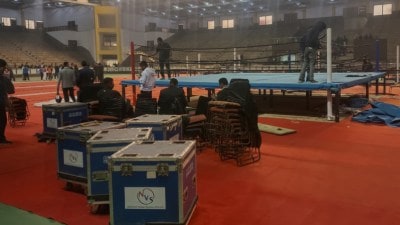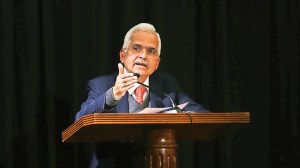TMC to convert solid waste into organic manure
MUMBAI, Oct 3: The Thane Municipal Corporation TMC has embarked on a major project to convert the city's solid waste into a eco-friendl...

MUMBAI, Oct 3: The Thane Municipal Corporation TMC has embarked on a major project to convert the city8217;s solid waste into a eco-friendly business proposition 8211; for producing organic fertilizers. Touted to be the first project of its kind in the country, the TMC could well usher a revolution in the fertilizer industry.
Brainchild of the Municipal Commissioner T Chandrashekhar, the project aims at minimising the effects of toxicants and associated health hazards contributed largely by inorganic fertilizers. The coporation has signed an agreement with Leaf Biotech Private Limited LBFL for manufacturing organic manure from solid waste and has a nine-acre plot for the purpose.
Chandrashekhar said the plant would be commissioned any time from now and brushed aside media reports saying that there are legal and technical hurdles in commissioning the project. Soon after the TMC took a policy decision to sign the agreement with LBFL, there was a strong opposition to the project on the ground that it wouldaffect the environmental conditions in the township.
8220;It is true that there were some objections for the project initially, but since the authorities have cleared the unit, there should not be any hurdle in the project going in for actual production,8221; Chandrashekhar said.Built at a cost of 5 crore rupees, the project has an installed capacity to treat 350 metric tonnes of solid waste and been approved by the Ministry of Environment and Forest.
A Leaf biotech official said that the company, after years of research and pilot trials, has come out with an eco-friendly and cost effective technology for urban solid waste management. Explaining the process, the official said the plant consists of two stages 8211; a biological process for the decomposition of garbage and mechanical process for screening the decomposed organic matter.
Once the solid waste is brought to the project site, innoculum 8211; a mixture of bacteria, cowdung and water 8211; will be used for speedy decomposition of organic waste and then theprogress of decomposing will be monitored by measuring the temperature of the heap and moisture content. The official said the temperature has to be between 65 to 70 degress Celsius to get the end product in 20 to 25 days. 8220;To ensure better end product, we have developed a unique dumping ground to prevent contamination of ground water,8221; the official claimed.
Leaving aside the criticism, the official justified the project, saying that collection and disposal of solid waste is one of the major problem for urban bodies due to lack of dumping land, financial and human resources. 8220;The entire project is based on the revised guidelines issues by the Supreme Court of India on solid waste management,8221; the official said.
- 01
- 02
- 03
- 04
- 05































